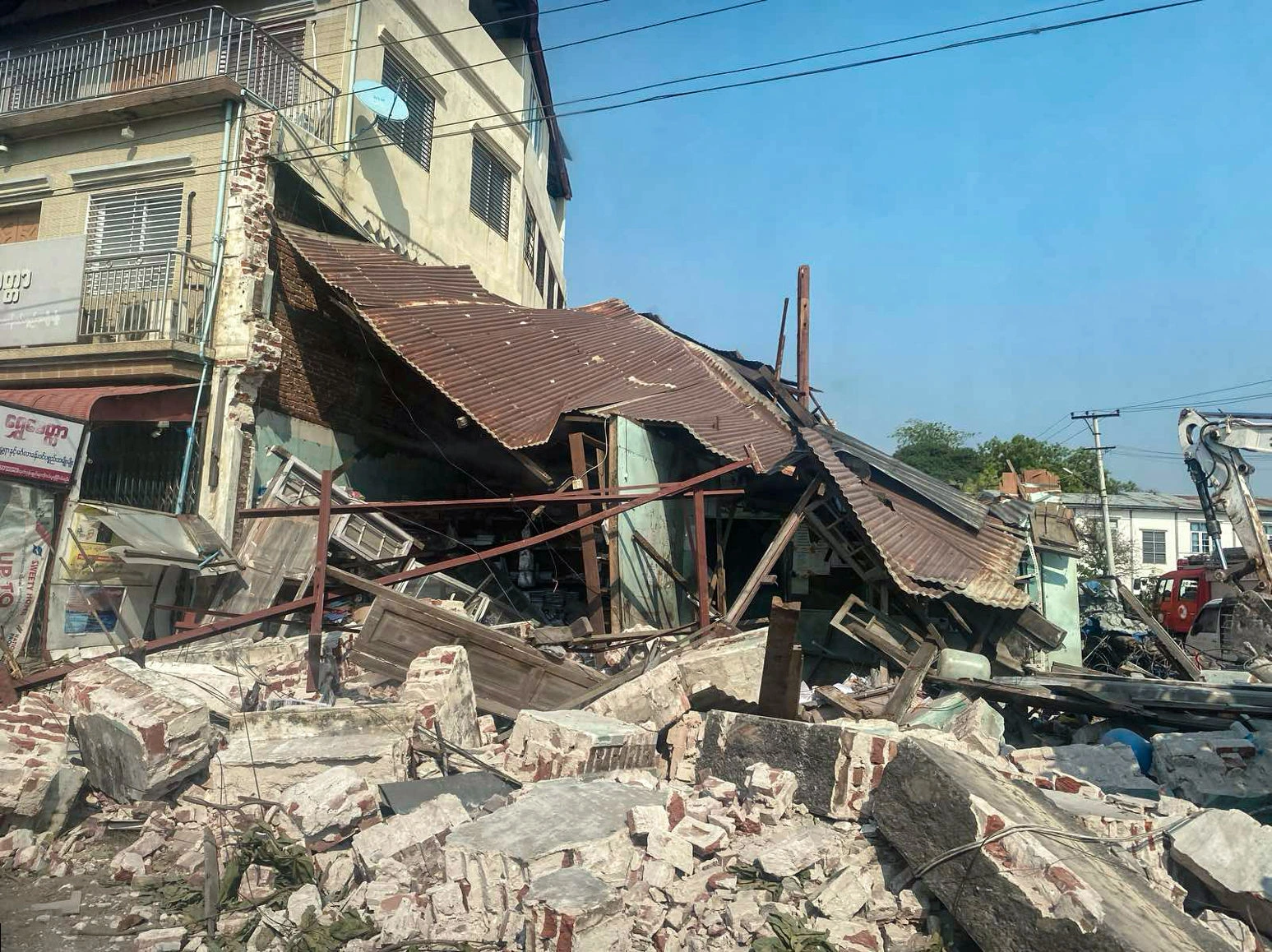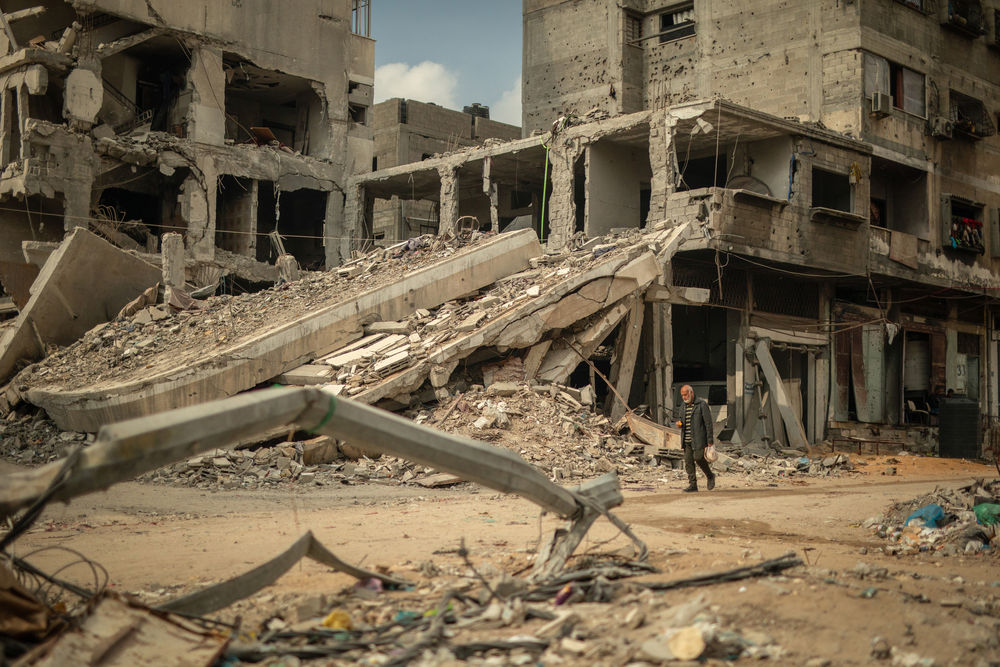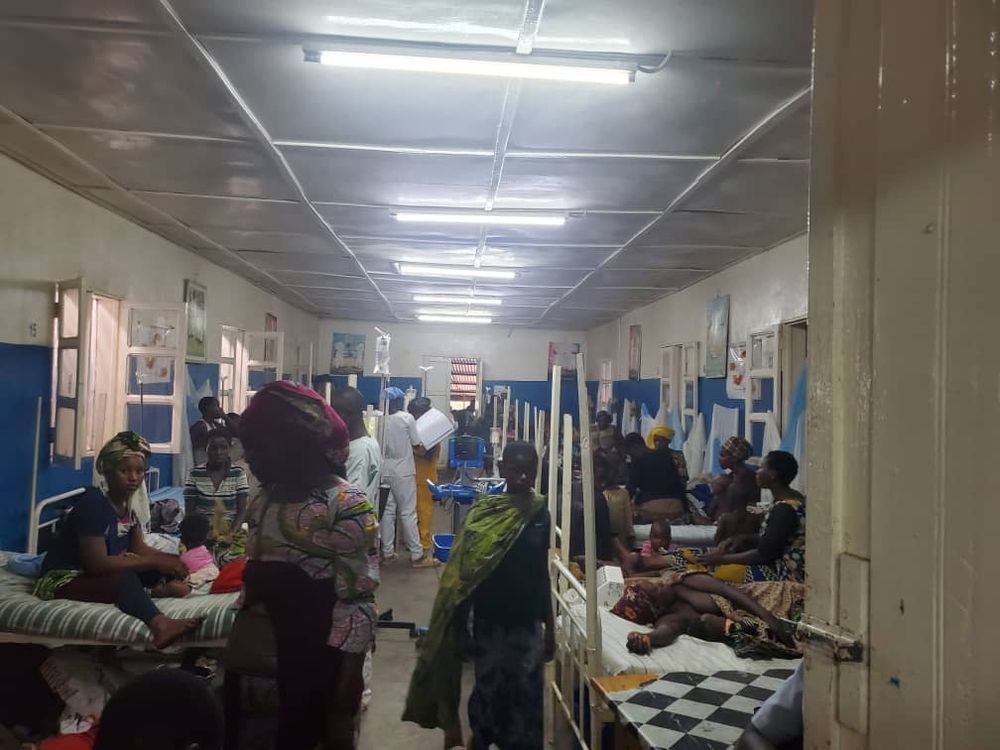Since more than 400 days, I mean, we didn't hear any kind of celebration, singing, dancing. Gaza, yesterday at night, started to celebrate, to sing, children in the streets, you can hear them singing songs. I cannot really prescribe, I mean, the people how they are hungry for peace. And they were all singing songs that they would go back to the north, to their homes.
There were a lot of my colleagues that were crying. I mean, even before the announcement of the agreement of the ceasefire, they started to cry. They cried, and they had really grief feelings. Some of them started to remember the ones that they lost at the beginning of the war. I mean, all of these sad feelings will start, I think, with the [end] of the war. Especially when the people who are displaced in the south will go back to their homes in the north and Gaza City and we'll see that it is not the same home that they left evacuated at that time. They will come to see a destroyed house. I think it will be very difficult. And again, I will say that fear will end, and pain will start.
Me, I had mixed feelings personally. At one point I wanted to smile and laugh and sing and at the same time to cry, to grieve. We will cry about a lot of things when the ceasefire will be starting. We will cry on the people that we lost, friends, family members. We will cry on for the orphans. We will cry for the widows in Gaza. We will cry for the disabled people. We will cry for the houses that have been destroyed and homes that have been destroyed.
At least the ceasefire, I mean, will stop the blood, will stop the killing, will stop the injured because every minute in Gaza since the last 400 days, it's just blood. You know, the war didn't kill only bodies, it tears apart your soul and hope and leaves behind you a kind of silence that screams pain.
── Abu Abed, Deputy Medical Coordinator
The ceasefire news was like a shock, our hearts almost stopped of happiness. Finally we will go back to our houses, the situation will be stable. We will not hear the sounds of the bombings, we will not drive the car very fast assuming that the missile is falling on us, the falling missile is not on us: these things we have been living for the past one year and a half. This is the safety that we are waiting for.
How we will go back, will we go on foot or in our car. If we go back by car, what we will take with us? What are the priorities that we will take with us? Finally, we said we will just take ourselves and go. We were thinking of going by car, but then we said let’s go on foot. Let’s see our people, relatives, our beloved ones, and our houses. Let’s see our area how it looks like now.
My children, she was 2 years old, and my son was 4 months old, he does not know what a home means They only know the tent and the feeling to be in the tent; they do not know the safety feeling of a home; they do not know the feeling of having a toy. My daughter, she told me, I will leave you and go to Gaza by myself. I want to walk and go there, and you follow me later.
My children now know what Gaza is and what is the meaning of returning back to home. I am happy to see them happy like this.
── Aysha, Infection prevention control Supervisor
Regarding the ceasefire agreement, I can finally take a breath of relief after it became official. However, the reality inside Gaza remains devastating. An entire generation has been irreversibly harmed by the war. What saddens me the most is the death of parents, the widespread destruction of the entire territory, and the collapse of the healthcare system and infrastructure. These losses are irreparable and remain tragic in a longer term.
People have lost their homes, their health, and even their limbs. The mental health crisis, with many suffering from PTSD, is a huge concern. The trauma experienced by the Gazan is profound, and I wonder how that will impact their daily lives. Gaza needs immediate support for recovery, to heal both physical and mental wounds.
The international community must come together to provide the necessary resources and assistance to help Gaza respond to its overwhelming humanitarian needs.
── Krystal So, Nurse and Midwife




